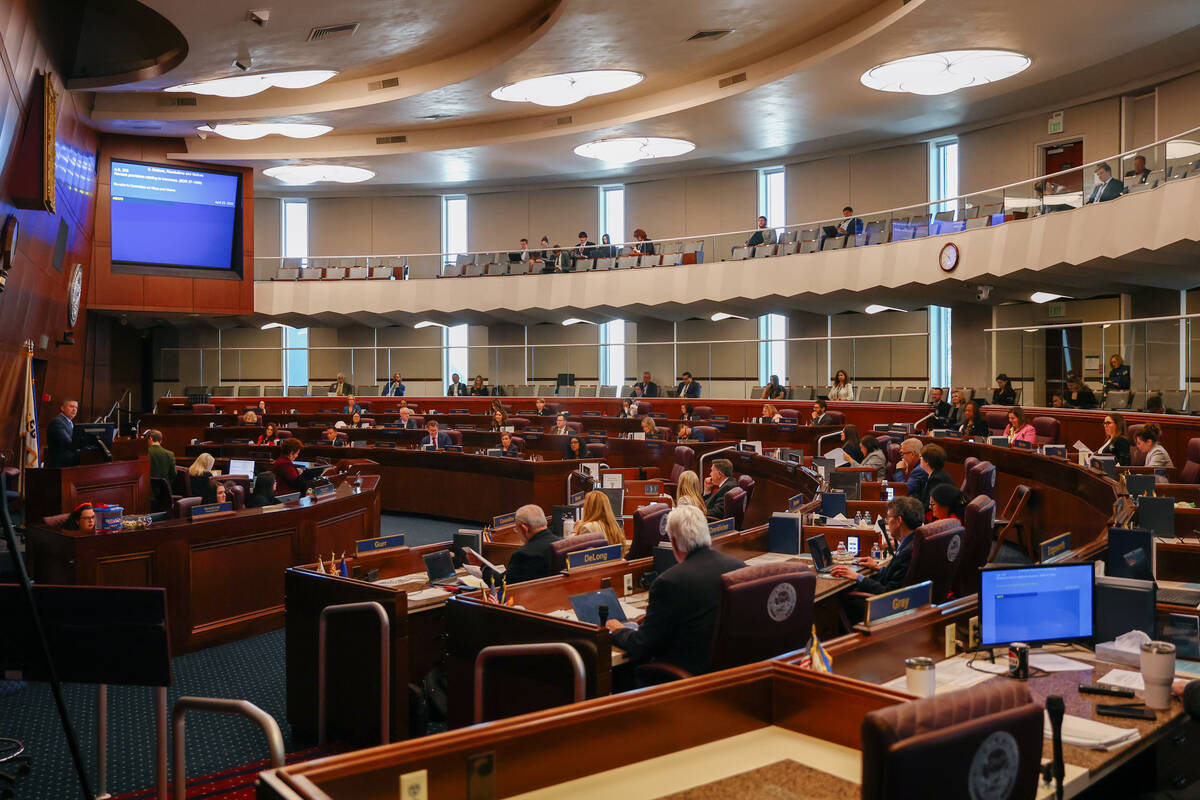A bill boosts Family Court privacy in Nevada. Foes say it threatens speech
CARSON CITY — A bill that would increase privacy in Family Court but could chill speech and press freedoms might pass both chambers of the Nevada Legislature.
Senate Bill 432, sponsored by the Senate Committee on Judiciary, sets guidance for family courts on the sealing and opening of records and authorizes a judge to exercise discretion on closing a hearing if it serves a “compelling interest.”
The bill passed unanimously in both the Senate and the Assembly Committee on Judiciary, and it will next be up for a vote in the Assembly.
When asked whether Gov. Joe Lombardo would sign the bill, spokesperson Elizabeth Ray said the governor would evaluate the legislation when it reaches his desk.
Proponents of SB432 say privacy is a fundamental right, and that Family Court cases involving children should not be made public because they can include medical information and other personal information. Open government advocates argue that the bill would hide the actions of elected judges from the public and that judges already have the ability to ensure private information is not made public.
Alex Falconi, founding director of Our Nevada Judges, an organization that educates the public on the Nevada judiciary and tracks judges’ decisions, said he was disappointed but unsurprised that the Senate unanimously passed SB432.
The bill purports to give judges discretion to close the court, but they already have the ability to do that, Falconi said.
Makes some disclosures a felony
Section 5 of the bill is particularly dangerous, he added. The section makes it a crime to willfully publish personal identifying information of another person without their consent, “if the information is required to be kept private pursuant to federal or state law or regulation or court rule.” It makes such an act a category D felony, which could result in one to four years in prison and a fine of up to $5,000.
“Its scope is far broader than Family Court, and it imposes restrictions on free speech so sensitive that it would forbid publication that routinely occurs in everyday news reporting,” Falconi said in an email.
That section would not apply to unmarried child custody cases the same way it applies to divorces, because legislators failed to target other statutes for repeal that render unmarried child custody cases “super-sealed,” he said.
“In other words, unmarried child custody cases, which are extensively sealed, would forbid a public posting that even mentions the case, under penalty of felony,” Falconi said.
Ben Lipman, chief legal officer for the Las Vegas Review-Journal, called the bill problematic. He said it is inconsistent with the constitutional right the public shares to view what goes on in courts while allowing judges to hide court proceedings and court records from the public — even the names of parties involved in a case.
“Mentioning the names of other people, as well as other information about them, is not only something the press does in virtually every story published every minute of every hour of every day, but is something all of us routinely post or display on a regular basis,” Lipman said in an email.
If the bill were to pass, it would subject everyone to the threat of felony prosecution if the information happens to be part of a court record that was sealed, he said.
Marshal Willick, a family law attorney who originally presented the bill, said many of the comments in opposition to the bill are “nonsense.”
SB432 provides the structure necessary to allow litigants to know what their options are and is a response to motions that say in the absence of “specific legislation” all records are open to the public, including “your child’s school and psychological records, your tax returns and private financial documents, and your private medical records,” Willick said in an email.
‘Deliberately disingenuous’
Willick added that a specific statute protecting the information of a person — whether it’s a witness in a protection program, a minor in educational records or the names in federally protected medical records — applies to everyone equally.
“The press has no greater right than anyone else to violate it,” he said in the email.
In response to claims that judges’ actions would be hidden, which Willick said are “deliberately disingenuous,” Willick said the bill would protect private litigants’ personal information, not judicial actions.
“None of this is or should be controversial,” Willick said.
Proponents of the bill claim it keeps personal information such as medical records private, but Falconi said the bill text doesn’t specify that. The bill’s protections would include information such as a person’s name, he said. Additionally, the bill doesn’t exclusively cover children, Falconi said, but everyone involved in Family Court.
Falconi said the bill would create a chilling effect on parents.
“If you speak about something in Family Court that is private, you’re committing a felony,” he told the Review-Journal in a phone interview.
Contact Jessica Hill at jehill@reviewjournal.com. Follow @jess_hillyeah on X.


















